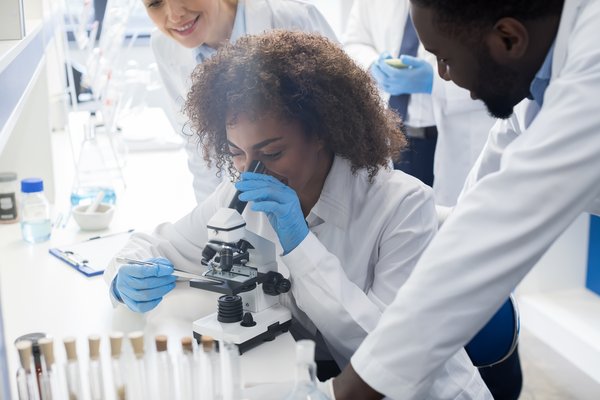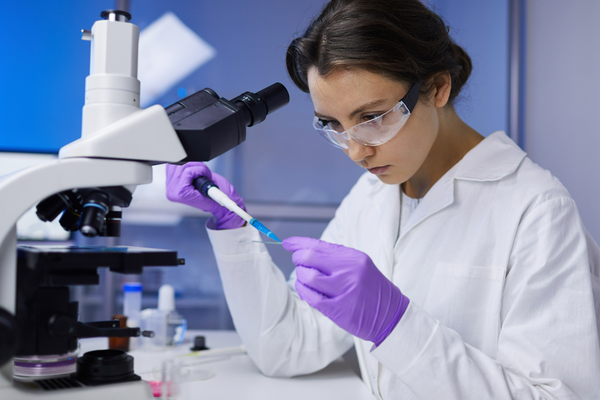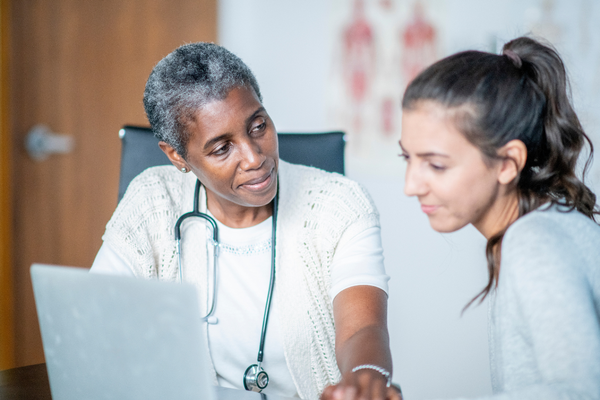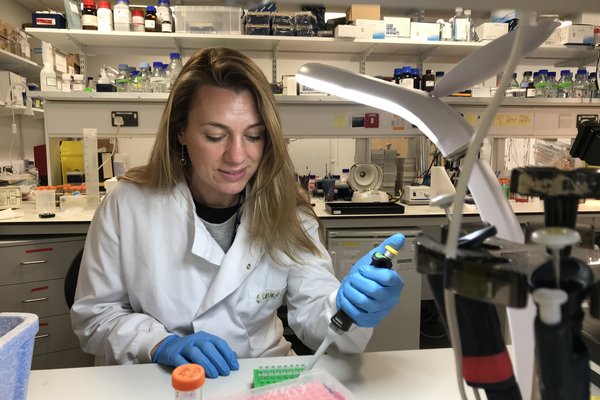
Understanding treatment resistance in ovarian cancer
Vaginal cancer is a cancer that starts in the vagina. You may have a lump inside your vagina, unusual bleeding or discharge. Vaginal cancer can be treated and there is support available.

This cancer starts in the vagina. The vagina is the skin tube leading from the external genitalia (vulva) to the cervix (neck) of the womb.
Vagina cancers occur when the cells forming the vagina start behaving abnormally and growing uncontrollably. There are many different types of vaginal cancer, this is because there are many different cell types that form the vagina. The type of cancer will depend on which cell type the cancer originated in.
Vaginal cancer is rare. There are 250 new cases in the UK each year and it is more common in older people. Around 4 in 10 new cases are in women aged 75 and over.
Many cancers can spread to the vagina, but this is not the same as cancers that start in the vagina.
It may be helpful to understand the different types of vaginal cancer, you can read about these here.
There are several things that may increase your risk of developing vaginal cancer:
HPV is the name given to a group of viruses with more than 100-different types. Not all of them are cancer causing, the ones that can cause cancer are known as high-risk HPV.
HPV is common and most people will get the HPV virus at some point in their life. It’s spread through close skin-to-skin contact during any type of sexual activity with a partner.
Most of us won’t realise we have HPV. It can stay at very low or undetectable levels for many years without causing problems. In most cases, the body’s immune system will eliminate the virus within two years. This means an HPV infection may have come from a partner a long time ago.
Some types of HPV can cause genital warts, and women who have had genital warts are at an increased risk of developing a pre-cancer (VAIN).
You can protect yourself by attending cervical screening and with the HPV vaccine, which is offered to 13–14-year-olds.
Find out more about risk factors on the NHS website.
You should go and see your GP if you have symptoms such as:
Even though these symptoms are unlikely to be vaginal cancer, it is still important to get checked. Your doctor will ask you about your symptoms and examine you. They may refer you to the hospital for more tests.
If you’re referred, you should have an appointment within two weeks.
It’s a good idea to keep a diary of your symptoms to take to any GP or hospital appointments. You may also want someone to go with you for support.
At the hospital you may have other tests such as:
Find out more about having a coloscopy.
There are treatments for vaginal cancer that can remove the cancer and help stop it coming back. The treatment you have depends on the size of the cancer, how far it has spread and your overall health.
Treatments include surgery and radiotherapy.
If you are diagnosed with vaginal cancer, your doctor will discuss the different treatments with you. You will also be able to ask them any questions that you might have.
It’s a good idea to discuss what your options are, and the benefits and risks of each, so that you can reach a decision that is best for you.
You can find more information about vaginal cancer on the NHS website.
If you are worried about vaginal cancer or have been diagnosed with it, there are places to get support:
You can also watch our gynaecological cancers webinar. Dr Sarah Kitson, an expert in women’s cancers, discusses the most common symptoms of the five gynaecological cancers: cervical; ovarian; vulval; vaginal; and womb cancer She also explains who may be most at risk and the impact a diagnosis can have.
Let's Talk Gynaecological Cancers
Dr Sarah Kitson, an expert in women’s cancers, spoke to Wellbeing of Women CEO, Janet Lindsay, about the five gynaecological cancers: cervical; ovarian; vulval; vaginal; and womb cancer.If you've experienced vaginal cancer, we'd be very grateful to hear your feedback about the content on this page. Have you found it helpful? Is anything missing? Please email your thoughts to [email protected].
As a women’s health charity, part of what we do is fund research to save and change the lives of women, girls and babies.







The vulva is the external part of the female genitals. Cancer in this area can cause a lump that may be sore or bleeding. There are 1,400 new cases in the UK every year.

Adenomyosis is when the lining of the womb grows into the muscle wall. It can cause heavy, painful or irregular periods.

Endometriosis happens when tissue similar to the lining of the womb grows in other places. It can cause chronic pain, heavy periods and other symptoms affecting your everyday life. With the right treatment, it can be made more manageable.